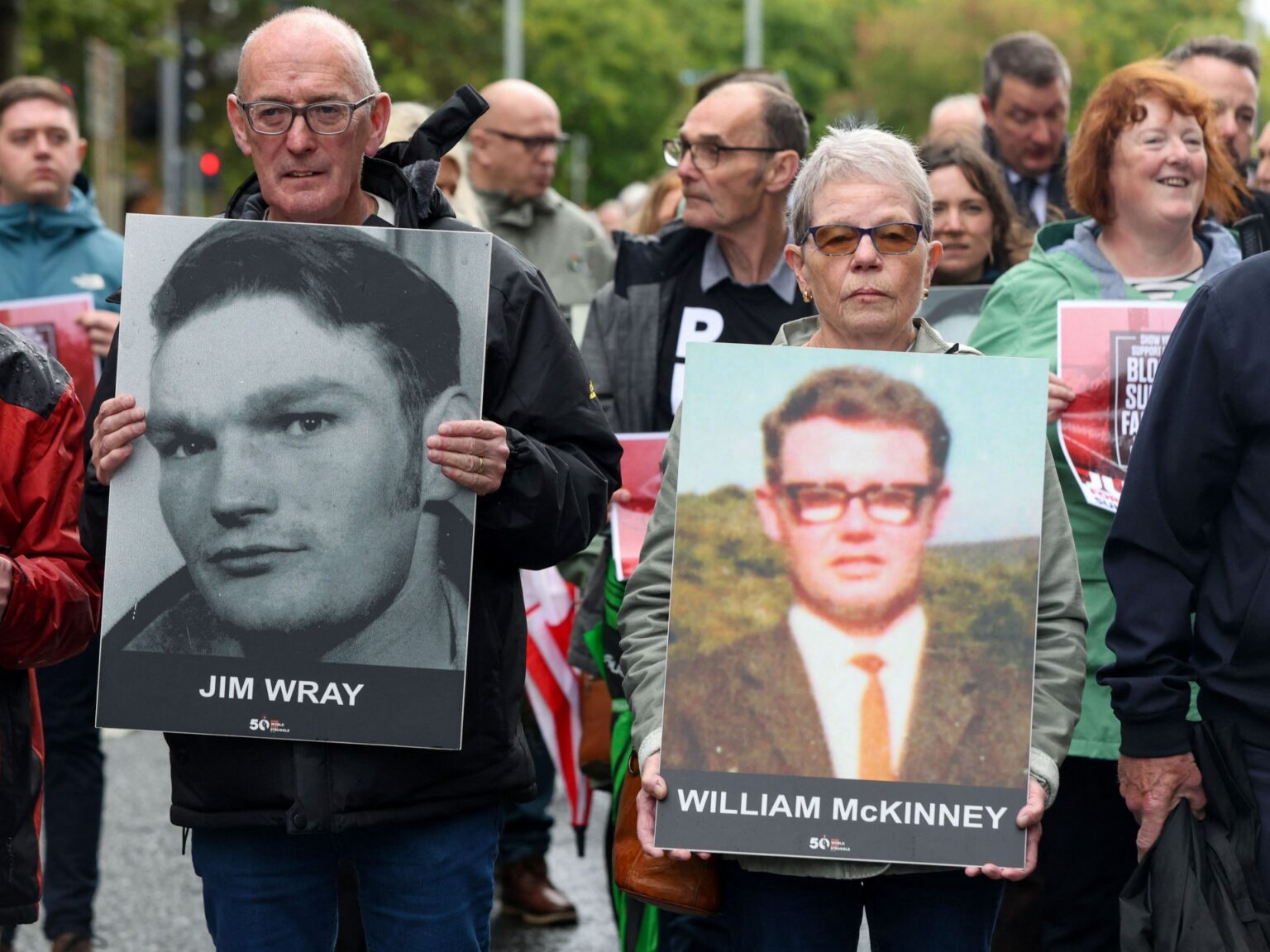The first-ever trial of a former British soldier accused of murder during the 1972 massacre began in Belfast on Monday.
The only British soldier charged with murder over the Bloody Sunday massacre has gone on trial in Northern Ireland, more than half a century after paratroopers opened fire on unarmed civil rights protesters, in what became a watershed moment of the Troubles – the three decades of sectarian conflict in the region.
Soldiers shot 26 civilians that day. Thirteen people were killed immediately, while another man died from his injuries four months later.
Recommended Stories
list of 4 itemsend of list
The former British paratrooper, known as Soldier F under a court anonymity order, is accused of murdering James Wray and William McKinney and attempting to murder five others when soldiers opened fire on unarmed Catholic civil rights marchers in Derry (also known as Londonderry) on January 30, 1972.
Prosecutors have previously ruled there was insufficient evidence to charge 16 other former British soldiers.
The massacre became a pivotal moment in the Troubles, igniting nearly three decades of violence between Irish nationalists seeking civil rights and a united Ireland, pro-British unionists wanting to remain in the United Kingdom, and the British Army.
For the families of those killed and wounded, the proceedings at Belfast’s Crown Court mark the culmination of 53 years of campaigning for justice.
From Widgery to Saville
On the day of the killings, about 15,000 people had joined a march in Derry city to protest systematic discrimination against Irish Catholics in housing, voting, and employment.
As demonstrators moved through the city, soldiers from the British Parachute Regiment opened fire, gunning down people as they fled and others who stayed to help the wounded.
The Widgery Tribunal, an investigation held in 1972, largely cleared the soldiers and British authorities of responsibility – findings that the families of victims and campaigners rejected as a whitewash.
A second inquiry, the Bloody Sunday Inquiry, also known as the Saville Inquiry, published its findings in June 2010. It concluded there had been no justification for any of the shootings and found that paratroopers had fired at fleeing unarmed civilians.
Then-Prime Minister David Cameron told the UK Parliament the same day that the killings were “unjustified and unjustifiable” and apologised on behalf of the British government.
Following the Saville Inquiry, police in Northern Ireland launched a murder investigation, with prosecutors finding that one former soldier would face trial for two murders and five attempted murders.
‘We shall overcome’
Outside Belfast Crown Court, John McKinney, the brother of William McKinney, described the trial as a landmark in the families’ decades-long fight for accountability.
“Everything that we have achieved to this point has been through relentless commitment and a refusal to lie down,” he said. “Today, our message is simple: towards justice, we shall overcome.”
Before the proceedings began on Monday, relatives of the victims marched to the courthouse holding photographs of those who had been killed and a banner reading “towards justice”.
Soldier F, who has pleaded not guilty to all charges, sat in the dock shielded on all sides by black sheets to conceal his identity, with a microphone suspended from the ceiling.
Lawyers for the prosecution said the case was focused specifically on the shooting of seven civilians as they ran through a residential courtyard.
“The shooting was unnecessary and it was gratuitous and was carried out with an intent to kill,” prosecution lawyer Louis Mably told the court.
“These soldiers lost control of themselves,” he said, describing their behaviour as “unprofessional” and “an act which disgraced the British Army”.
The trial will continue for weeks.
https://www.aljazeera.com/news/2025/9/15/british-soldier-faces-trial-over-northern-irelands-bloody-sunday-killings?traffic_source=rss


